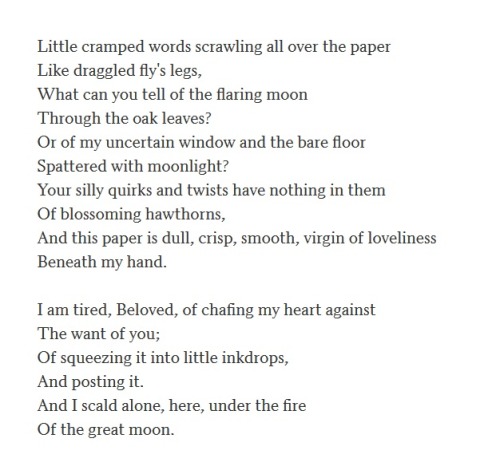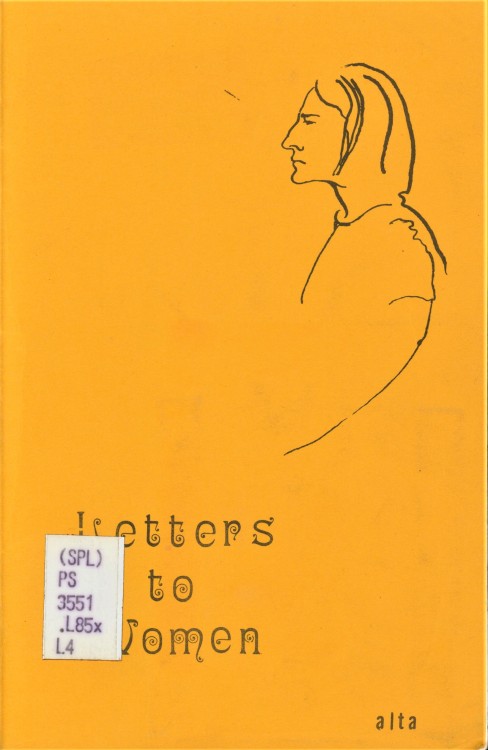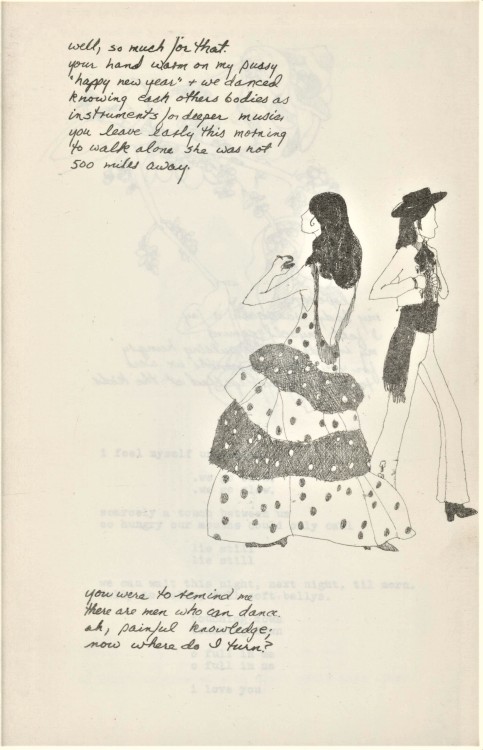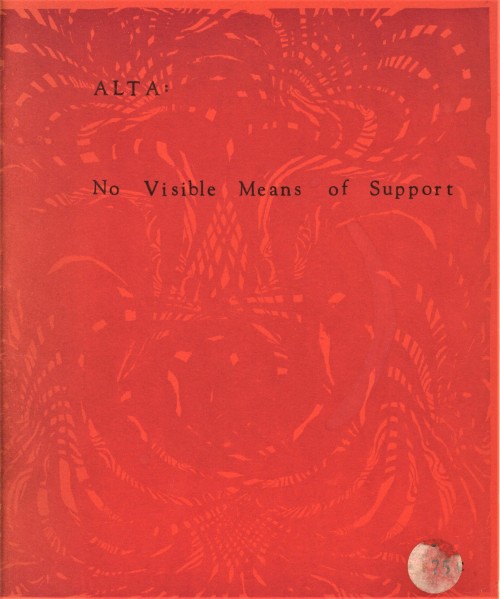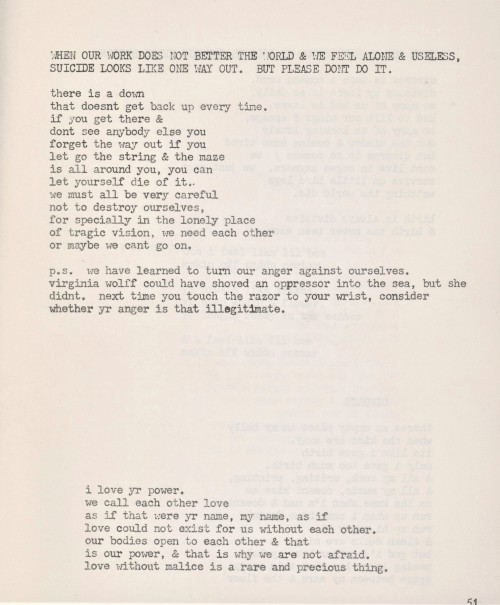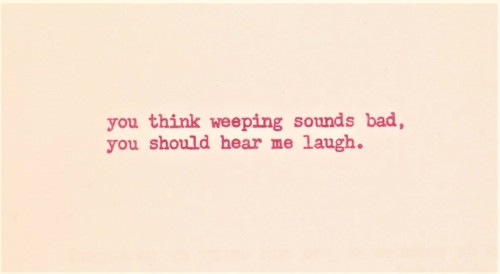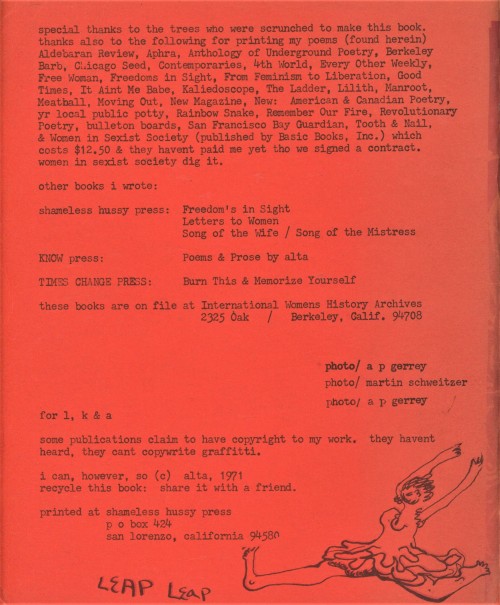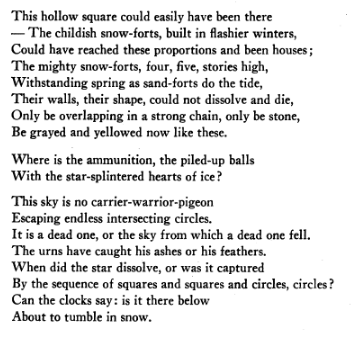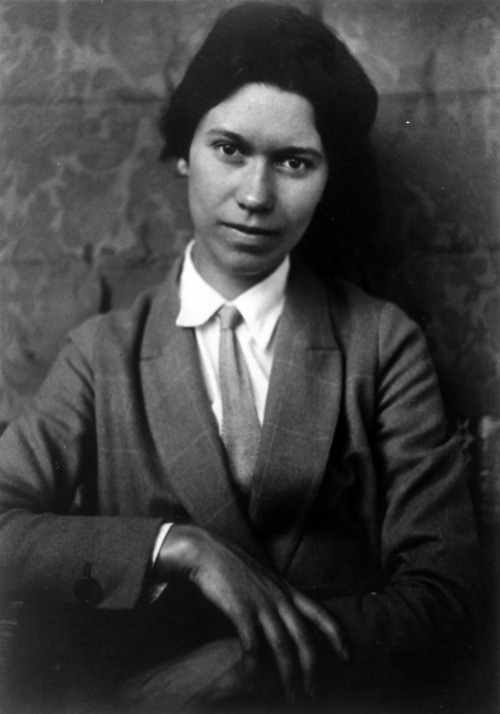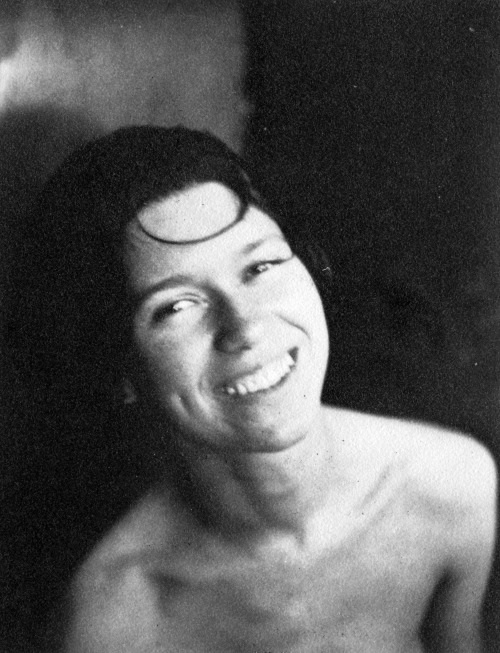#lesbian poetry
– Amy Lowell (1874-1925), The Letter
from Everyman’s LOVE SPEAKS ITS NAME: Gay and Lesbian Love Poems anthology
Post link
First Feminist Press!
Shameless Hussy Press
With the stress of Roe vs Wade potentially facing a repeal this summer, we want to let the women in our lives know they are not alone in their frustration. The fight women have been waging for their intellectual and bodily freedom has been a long one, so we wanted to revisit some history about the first women-owned feminist press in California, the Shameless Hussy Press! Poet and soon to be publisher Alta Gerrey founded the press in Oakland, California, in 1969, and would publish four women who later became prominent feminist writers: Pat Parker,Mitsuye Yamada,Ntozake Shange, and Susan Griffin. Alta published her own titles under her Shameless Hussy Press imprint, including three poetry collections preserved in our collection:Letters to Women, published around 1970;Song of the Wife; Song of the Mistress, published in 1971;No Visible Means of Support, published in 1971.
Alta’s sarcastic and straightforward writing style is reflected in the Shameless Hussy Press aesthetic. In her first collection, Letters to Women, she includes the iconicfeminist symbol of a fist within the symbol of Venus and her copyright statement reads:
for underground reproduction without profit, there is no copyright. for moneymakers, this is copyright, and you gotta pay.
Alta emphasizes the aid of her friends and family in producing her book, and poetry aimed at letting women know that they were not alonein whatever injustices and hardships they faced, whether gender inequality and sexism, marriage and divorce, rape, mental illness, or raising children.
Alta’s second collection, Song of the Wife; Song of the Mistress, with drawings by Martha Kuech, reflects the intimacy the poet felt with her readers and how she used poetry as the outlet for emotions that could be a burden too heavy to carry at times. Letters to Women is dedicated “to every woman who is as isolated as i,” but Song of the Wife; Song of the Mistress "isn’t dedicated to anybody. eat yr hearts out.” Alta had a love for improper grammar, punctuation, and unconventional spelling. The first half of this second book reproduces a handwritten cursive script, presumably Alta’s handwriting, and the second half switches back to typewriter print. This title and Alta’s third collection, No Visible Means of Support, were both published after the Shameless Hussy Press had moved down the Bay to San Lorenzo, California, from its original location in Berkeley. Alta made the choice to move her independent press after the sabotage of a friend’s press in the same area, as well as to protect her daughter and herself from death threats she received for her work in the lesbian, feminist, and activist communities.
Shameless Hussy Press was the first to publishNtozake’s Shange’s poetic performance work, For Colored Girls Who Have Considered Suicide When the Rainbow Is Enuf, which was later adapted into an Obie award-winning Broadway theater production. In 1976, Shameless Hussy publishedCamp Notes and Other Poems by Mitsuye Yamada, revolving around her experiences in the internment camps and the pain she felt at being perceived as an outsider.
The formation of the Shameless Hussy Press by Alta and the Women’s Press Collective by Judy Grahn, with aid from Pat Parker (whoI posted about earlier), was quite inspirational for second wave of feminism. The four women who brought the feminist and lesbian publishing community to the foreground in California, Alta, Susie Griffin, Judy Grahn, and Pat Parker, had all met originally as neighbors over tea, but decided it was time to take action in their communities. Alta said in an interview that the group would often argue over how political their writing should be, wondering whether they should, “stick to the personal. [but] Susie kept saying, ‘the personal is political.’”
Griffin’s works were said to have launched ecofeminism in the United States as she rose to become one of the most influential American feminist writers of the 20th century. Alta’s Shameless Hussy Press gave these influential women the opportunity to be published outside the patriarchy of mainstream publishing, allowing them to completely claim their work as their own. Shameless Hussy ran from 1969-1989, despite being a one-woman-publishing house, publishing over fifty titles in its 20-y3qr existence.
–Isabelle, Special Collections Undergraduate Writing Intern
Post link
I always anticipate an ending
It’s my nature to prepare for a fallout.
But, if this ends…
I know that you’ll always be the girl
Sitting across from me
At a dive bar in downtown Toronto
Looking at me the way that you do -
The softness, the rebellion
All of the beautiful contradictions
That are wrapped up in you.
A look that would send me diving in after you,
A look that I didn’t know I had been yearning for.
You’ll always be the girl,
Porcelain skin, scarlet hair,
Thin lips that curl into a half-smile…
Sitting across from me at a bar
Looking at me, sipping her rye.
If this ends…
I know that I’ll still see you, seeing me
If this ends…
I know that I’ll keep looking for you
In ghosts and in other girls.
I think of the women.
The women I’ve touched. The women who’ve touched me. The women whose bodies are now so far from mine. The bodies I grasped, pulled inward, knew intimately. The bodies I drew warmth from.
I remember these bodies vividly. I see flashes of their hips, their thighs, their belly buttons. It all happens at once. All of it.
It’s us - when we wereus.
It seems so drastic, to shift from exchanging breath to exchanging glances. When did we stop breathing into each other?
I knew that the marks I left on your skin wouldn’t last. But I can’t help but see you without clothing or inhibition. Maybe that’s why you avoid me. Because your skin still stretches too thin.
Because I still seeyou.
You happened to me. I was happened to
like an abandoned building by a bull-
dozer, like the van that missed my skull
happened a two-inch gash across my chin.
You were as deep down as I’ve ever been.
You were inside me like my pulse. A new-
born flailing toward maternal heartbeat through
the shock of cold and glare: when you were gone,
swaddled in strange air I was that alone
again, inventing life left after you.
I don’t want to remember you as that
four o’clock in the morning eight months long
after you happened to me like a wrong
number at midnight that blew up the phone
bill to an astronomical unknown
quantity in a foreign currency.
The U.S. dollar dived since you happened to me.
You’ve grown into your skin since then; you’ve grown
into the space you measure with someone
you can love back without a caveat.
While I love somebody I learn to live
with through the downpulled winter days’ routine
wakings and sleepings, half-and-half caffeine-
assisted mornings, laundry, stock-pots, dust-
balls in the hallway, lists instead of longing, trust
that what comes next comes after what came first.
She’ll never be a story I make up.
You were the one I didn’t know where to stop.
If I had blamed you, now I could forgive
you, but what made my cold hand, back in prox-
imity to your hair, your mouth, your mind,
want where it no way ought to be, defined
by where it was, and was and was until
the whole globed swelling liquefied and spilled
through one cheek’s nap, a syllable, a tear,
was never blame, whatever I wished it were.
You were the weather in my neighborhood.
You were the epic in the episode.
You were the year poised on the equinox.
Marilyn Hacker

“Valentine” by Tzivia Gover
[From My Lover Is A Woman, ed. Lesléa Newman, pp. 85]

“SWEET(S)” by Julia Willis
[From My Lover Is A Woman, ed. Lesléa Newman, pp. 257]
The Sunflowers
by Mary Oliver
…
Come with me
into the field of sunflowers.
Their faces are burnished disks,
their dry spines
creak like ship masts,
their green leaves,
so heavy and many,
fill all day with the sticky
sugars of the sun.
Come with me
to visit the sunflowers,
they are shy
but want to be friends;
they have wonderful stories
of when they were young -
the important weather,
the wandering crows.
Don’t be afraid
to ask them questions!
Their bright faces,
which follow the sun,
will listen, and all
those rows of seeds -
each one a new life!
hope for a deeper acquaintance;
each of them, though it stands
in a crowd of many,
like a separate universe,
is lonely, thelongwork
ofturningtheirlives
intoacelebration
isnoteasy. Come
and let us talk with those modest faces,
the simple garments of leaves,
the coarse roots in the earth
so uprightly burning.
Mary Oliver reading her poem Wild Geese.
“Wild Geese” by Mary Oliver (1935-2019)


19.12.19 // it’s been a hot minute since my last post, but first semester of grad school is finally over! So here’s some cut-out word poetry type stuff
Thinking about this/ knocked me off me feet/ I used to be really afraid/ Lost
But with her it’s natural/ fire between us/ she’s bold and understands
She was well beyond my reach/ but chose me
Ragged and euphoric/ we love/ This is what we want/ and we believe in it
Finally able to grow/ and be happy
Now I know/ just how much/ I need her
I tried to make her love me,
but her mouth was
hard
bones.
Yet I loved her,
and I wanted her to love me back.
But everyday
she gave me rocks and stone.
I love her still.
Portraits of a young Elsa Gidlow, circa 1920s.
Elsa Gidlow was a lesbian poet, philosopher, and woman of letters. Her book On a Grey Thread (1923) was the first collection of openly lesbian love poetry published in North America, and her autobiography, Elsa: I Come With My Songs (1986) was the first lesbian autobiography whose author did not publish under a pseudonym. After her death, her papers were gifted to the GLBT Historical Society.
Post link

